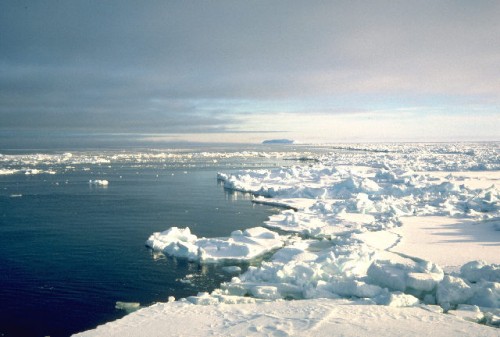Sea-level rise estimates for the end of the twenty-first century may grossly underestimate the effect of climate change on the flow of the Antarctic ice sheets, causing some scientists to assert that sea levels may rise as much as 80–200 centimeters, substantially more that than the 18–59 centimeters projected by the Intergovernmental Panel on Climate Change, according to the latest issue of World Watch Magazine.
A growing body of evidence suggests that ice sheets can respond rapidly to climate change in a manner that causes accelerating contribution to sea-level rise during warming. While the instrumental record of surface temperatures in parts of the region is spotty and satellite measurements unreliable due to cloudy conditions, analysis of ice-core records used to investigate temperature trends in the Greenland-sized West Antarctic Ice Sheet indicate the region has warmed by 2 degrees Celsius since 1950.
“Antarctica is the coldest, highest, driest—and of course iciest—place on Earth,†writes Andrew Monaghan, author of “Antarctica and Climate Change†in the January/February 2009 issue of World Watch. “Add to that the ’remotest’ and it becomes clear why teasing the record out of this vast continent had been a challenge.â€
While the magnitude is disputed, there is wide agreement that the global sea level will continue to rise during the twenty-first century. Those who will be most affected include more than 100 million people living within one meter of sea level, many in developing countries.
“Many of these countries are ill-equipped to deal with the problem,†writes Monaghan. “Actions on the part of industrial nations to curb greenhouse gas emissions will set an example for rapidly developing nations and will be an important step toward mitigating the impacts of ice sheets on future sea-level rise and humans worldwide.â€
In essence, shit meet fan. The time is long past for thinking about what we are going to do about this problem, and time to start doing it.
